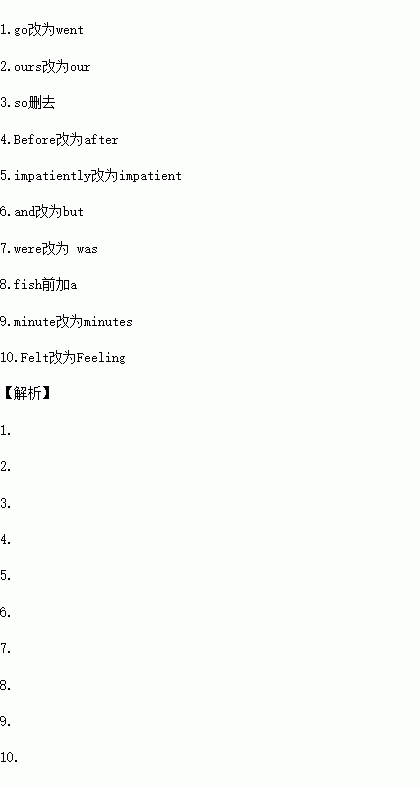题目内容
短文改错(10分)
共有十处错误,增加:在缺词处加一个漏字符∧,并在其下写上该词
删除:把多余的词用\划掉
修改:在错词下画一横线,在其下写上修改后的词
My grandfather and I enjoy fishing.
One Sunday morning we go fishing at a lake. We took ours fishing poles and headed for the lake.As soon as we arrived, so we dropped the lines into the water.Before waiting for about half an hour, I was beginning to get impatiently, I wanted to give up, and my grandfather told me to wait a little longer. Finally, there were a sudden pull at the pole and fish was caught. Within the next few minute, my grandfather also caught a fish.
Felt hungry, we built a fire by the lake and barbecued the fish. It was delicious.
练习册系列答案
相关题目

